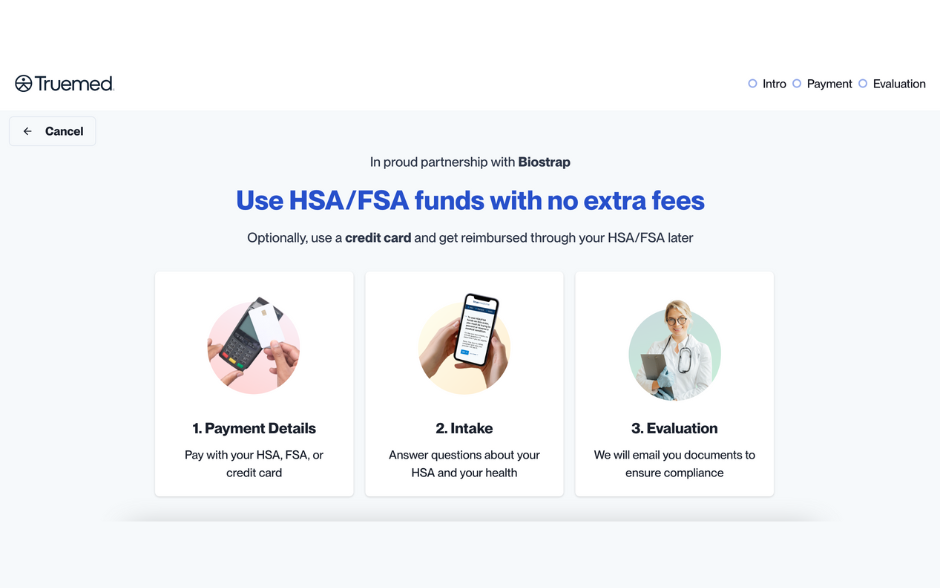Alpha-GPC, or Alpha-glycerophosphocholine, is a natural compound found in your brain that serves a wide variety of functions. From improving memory and learning to enhancing overall cognitive function, Alpha-GPC is available in some countries as a medication and in others, including the United States, as a dietary supplement.
Yet many of us still don’t know exactly what Alpha-GPC is or even what it does. Let’s take a closer look at this nootropic to answer these very questions. We’ll determine what it is, how it can boost brain function, and what side effects it may cause along the way.
What Is Alpha-GPC?
Before we can discuss the specifics of Alpha-GPC, we must first take a closer look at two important nutrients in the brain known as choline and acetylcholine.
When we consume certain foods such as poultry, fish, eggs, spinach, and beets, our body absorbs a wide variety of nutrients that benefit us in various ways. One of these nutrients is known as choline, and though our body produces its own choline in the liver, our primary source of choline comes from our diet. Choline supports cell membranes as well as cell messaging, and it maintains our nervous system by producing the neurotransmitter acetylcholine.
Acetylcholine is an important neurotransmitter that sends signals to neurons, muscle cells, and gland cells in our body. Most notably, acetylcholine also plays an important role in the brain’s ability to function properly and recall information.
So, how do these compounds tie into Alpha-GPC? Well, when we consume Alpha-GPC in supplemental, dietary, or medicinal form, we’re also consuming large amounts of choline. This is because upwards of 40% of Alpha-GPC is made of choline. And once we’ve consumed Alpha-GPC, our body can use the choline it contains to support our brain and produce more acetylcholine.
Another compound that’s similar in nature to Alpha-GPC is called CDP-choline, or citicoline. Alpha-GPC and citicoline are often compared because they work similarly when consumed as supplements, but Alpha-GPC raises choline levels in the blood more than citicoline does. Because Alpha-GPC can be more readily used by the body to produce choline, it can provide more benefits. Let’s take a closer look at what those benefits may be.
The Many Uses of Alpha-GPC
Alpha-GPC has been used to treat a variety of brain-related conditions that lead to cognitive impairment. Some research suggests it may effectively improve brain health and physical performance as well. Now, let’s break down the uses of Alpha-GPC in greater detail.
Alzheimer’s Disease
Research suggests Alpha-GPC may be used to improve thinking skills in individuals who suffer from Alzheimer’s Disease, and the results from clinical trials have been promising. In a 2003 clinical trial of 260 patients suffering from Alzheimer’s Disease, the use of Alpha-GPC improved symptoms in every single trial participant. A separate 2014 Alzheimer’s study that examined 113 individuals found that Alpha-GPC boosted the effects of standard treatment.
Though we don’t fully understand how this process works, Alpha-GPC may prevent and even reverse cognitive decline in those suffering from Alzheimer’s, poor brain circulation, and other stressors.
Dementia
Dementia is not a specific disease, but rather “the loss of cognitive functioning — thinking, remembering, and reasoning — and behavioral abilities to such an extent that it interferes with a person’s daily life and activities,” according to the National Institute on Aging.
Alpha-GPC is available as an oral supplement or a shot in Europe, where 1,000 milligrams is administered to improve symptoms of dementia including behavior, mood, and thinking skills. Unfortunately, this form of Alpha-GPC is not available in the U.S.
Stroke Recovery
A stroke is an interruption of the blood supply to the brain. If left untreated, a stroke can cause permanent brain damage that may lead to cognitive defects. A 2001 study that reviewed three clinical trials of 2,500 stroke survivors found that Alpha-GPC can help recover mental functions after a stroke has occurred. Cognition improved in 70% of the stroke cases that were reviewed.
Unfortunately, these studies did not use control groups, so we can’t say with certainty that improvements would only be seen in stroke survivors. More clinical testing is needed to determine if Alpha-GPC truly plays a role in stroke recovery.
Athletic Performance
Alpha-GPC has gained popularity among athletes, weightlifters, and bodybuilders due to its reported performance-enhancing properties.
In two studies that monitored the athletic performances of 61 young men, Alpha-GPC improved speed, power, and pull force, with stronger effects on the lower body. A separate 2015 study that examined 22 individuals found that Alpha-GPC enhanced vertical jump power by 8.5%.
Research published in the Journal of the International Society of Sports Nutrition found that pre-workout supplementation with Alpha-GPC led to a spike in growth hormone secretion. It also led to a 14% higher bench press force, though it didn’t have any impact on power or recovery.
And finally, a 2012 study found that Alpha-GPC boosted growth hormone production and fat burning. Its effects on growth hormone were temporary and more pronounced in the elderly.
From this research, we’ve found that Alpha-GPC has the ability to improve athletic performance in healthy, young individuals by increasing power output during strength training or competitive pursuits. It may also stimulate muscle growth by increasing growth hormone, but evidence in this regard is more limited and the effects may be temporary.
Other Potential Uses
Aside from the uses listed above, Alpha-GPC may also improve memory, thinking skills, learning, and other mental conditions. Research that examines the effects of Alpha-GPC on our brain’s cognitive function is ongoing.
Side Effects and Risks
Side effects and risks associated with the consumption of Alpha-GPC remain minimal and non-life threatening. The most adverse effects in clinical trials include heartburn, headache, nausea, dizziness, skin rashes, and confusion.
The appropriate dose of Alpha-GPC will depend on several factors, such as age, weight, health conditions, and more. Though acute supplementation may seem harmless, experts believe that more testing is needed to determine an appropriate range of doses.
Alpha-GPC is a dietary supplement in the United States, and therefore, not regulated by the Food and Drug Administration (FDA). It’s best to seek medical advice from a healthcare professional before consuming Alpha-GPC in any form.
Things to Consider When Supplementing With Alpha-GPC
Some Alpha-GPC supplements are derived from soybean plants. While we all stand to benefit from reading product labels before consuming a dietary supplement, those that have a soy allergy should pay extra attention when searching for the right Alpha-GPC product.
Additionally, Alpha-GPC absorbs moisture and breaks down over time, so any Alpha-GPC supplement should be stored according to package instructions.
Is Alpha-GPC Right for You?
Alpha-GPC is a remarkable compound with a wide assortment of potential uses. From improving cognitive brain function to boosting physical performance, research suggests Alpha-GPC may aid our lives in more ways than one.
Keep in mind that research is ongoing and more testing is required to determine the proper dosage guidelines and potential uses. Speak with your healthcare provider to determine if Alpha-GPC is right for you.



